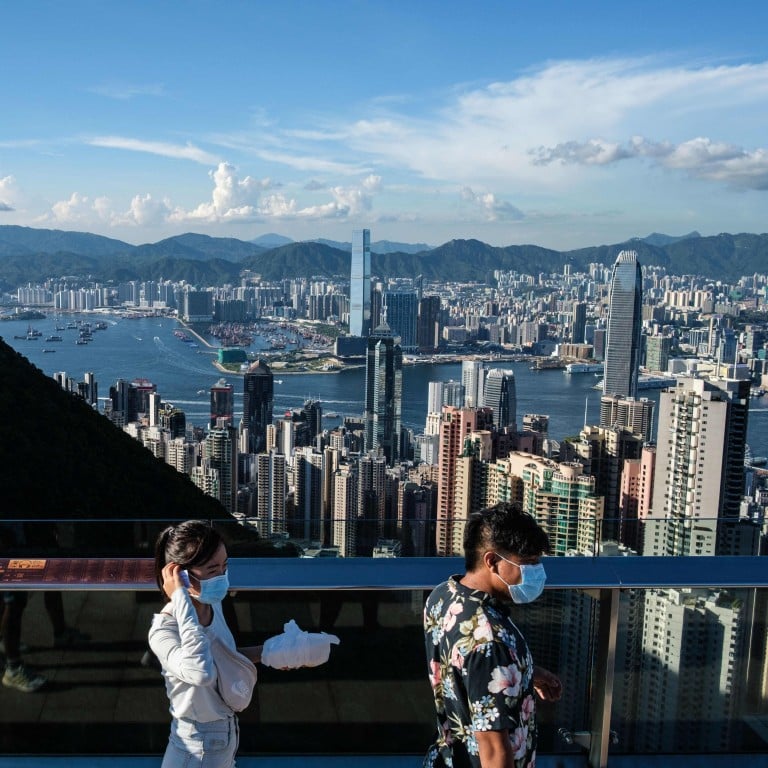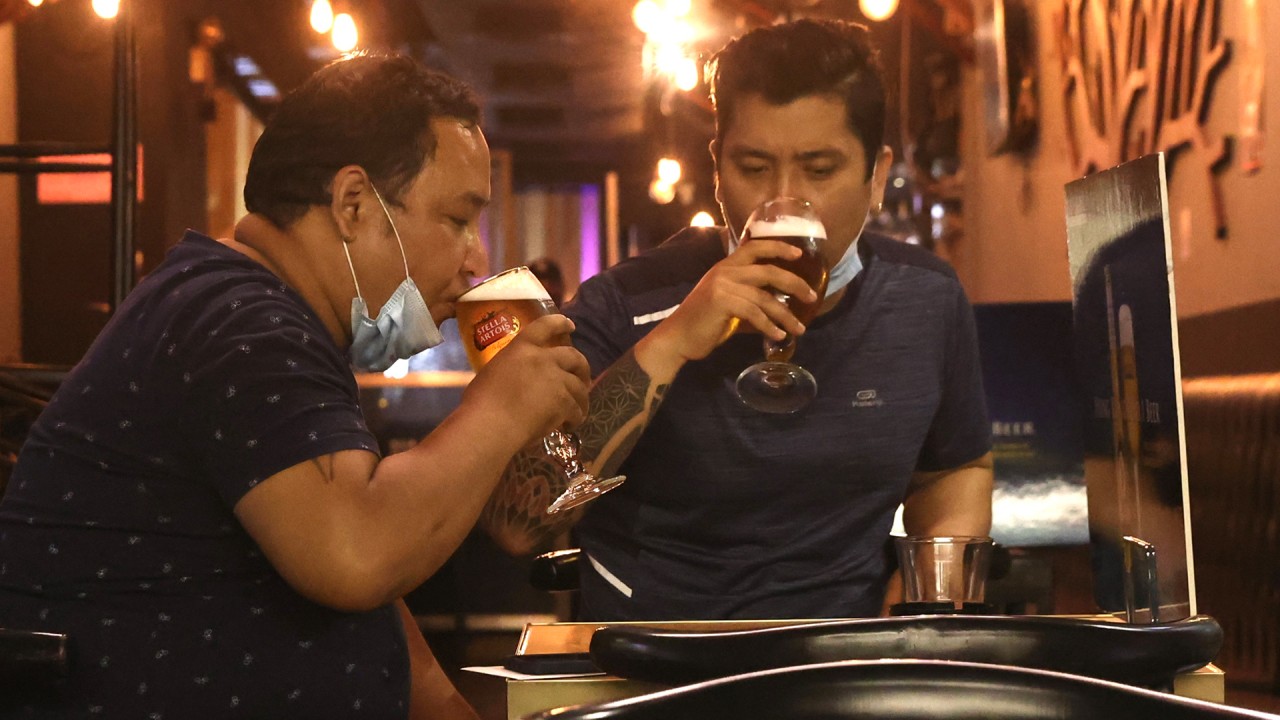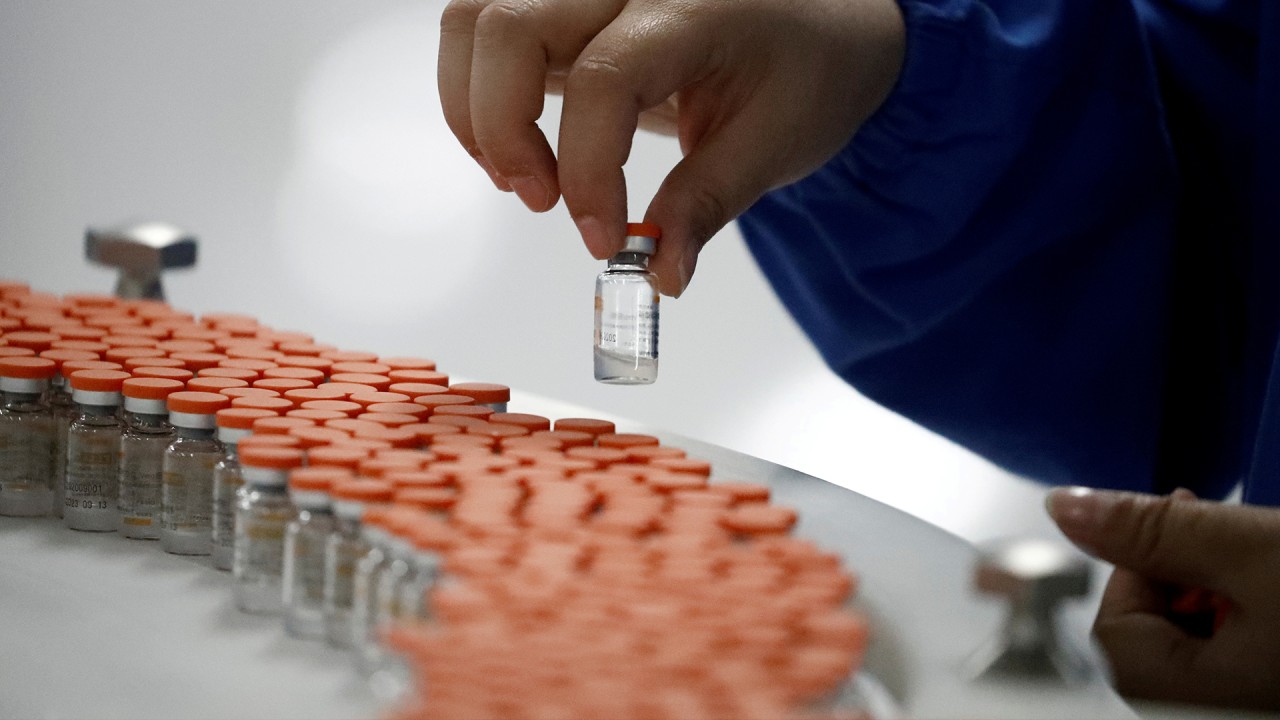
Vaccine hesitancy puts Asia’s ‘zero-Covid’ economies like Hong Kong, Australia in herd immunity stalemate
- While jabbed-up Europe prepares to open its borders, public reluctance towards Covid-19 shots is so great in zero-tolerance places like Australia, Hong Kong and Taiwan it puts in doubt their ability to reach the threshold
- Incentives are needed if these places are to avoid becoming isolated from the rest of the world, experts say
For many Asia-Pacific economies that practically eliminated the virus with border closures and sporadic lockdowns, herd immunity, long held out as the great hope for returning to normality, is looking increasingly out of reach.
For authorities with zero tolerance for infections, the lack of public enthusiasm for vaccines, coupled with limited vaccine supplies, raises the spectre of a permanent pandemic stalemate, in which borders stay closed indefinitely and sporadic outbreaks remain an ever-present threat.
The grim outlook, which comes as Europe prepares to reopen its borders to vaccinated travellers within days, highlights what a growing number of experts say is an urgent need for bold action by authorities to break the impasse.
“There is a sense there is a lot to lose if we allow any community transmission, but in reality we worked hard to get to this stage so we could shift to relying on the protections vaccines offer, and knowing we could now let the virus in and maintain the upper hand,” said Catherine Bennett, a public health expert and epidemiologist at Deakin University in Melbourne, Australia.
“Our leaders need to demonstrate this confidence to the public. Otherwise the public is also uncertain and then thinks borders need to stay closed, so why bother vaccinating, and you get into a vicious cycle that actually leaves the population more vulnerable.”

06:18
SCMP Explains: What’s in a Covid-19 vaccine?
In Australia, almost one-third of the public does not intend to get vaccinated, according to polling published this week by The Sydney Morning Herald and The Age newspapers, with about half of those expressing concern about side effects and one-fifth citing the low number of cases, minimal risk of catching the virus and inability to travel.
Nearly three months into the vaccine drive, only about 11 per cent of the city has been fully vaccinated, with uptake in recent days slowing to a crawl.

“I think when vaccines become available, some actions will be taken to encourage people to get vaccinated in Taiwan,” said Yu-kang Tu, director of the Institute of Epidemiology and Preventive Medicine at National Taiwan University.
“Also, people who wish or need to travel abroad will have to get vaccinated.
“I hope the authorities do have a plan of action, but as we often say in Chinese: the plan can’t keep up with the changes.”
As West races back to travel, ‘zero-Covid’ economies face hermit risk
Not all low-Covid economies have struggled with public reluctance to get vaccinated.
Even as vaccination uptake lags across much of the region, authorities have offered few incentives to boost uptake, such as quarantine-free travel for vaccinated travellers or concrete targets or timetables for lifting border controls.

01:52
‘Vaccine bubble’ allowing Hong Kong bars and party rooms to reopen leaves many confused
Authorities have offered little indication of any change to border controls for the foreseeable future, apart from plans to resume one-way quarantine-free travel for mainland Chinese once the city has attained several weeks of zero local infections – a target the government has been chasing without success since November.
Roberto Bruzzone, co-director of the HKU-Pasteur Research Pole in Hong Kong, described herd immunity as a “mirage” as Covid-free places would either have to learn to live with the virus at some level or become isolated from the world.
“Given that 200 cases a day in Taiwan activates the panic button, then it is hard to see how any traveller from the EU will be spared the three-week quarantine after arriving in Hong Kong for many years to come,” Bruzzone said.
In chasing zero Covid infections, Hong Kong has become trapped by its success
“It is possible that next year most people in Hong Kong will have been vaccinated but then, what about the new variants? What about new vaccination campaigns, as we have in place for influenza?”
Bruzzone, who stressed that political decisions should be left to politicians, said it was time to “look ahead and sketch some midterm plans, strategies, rather than react to specific situations”.
“A year ago we were told by almost all local experts that we should endure these restrictions until a vaccine became available,” he said. “Now we have several excellent vaccines, what is the plan?
“Hong Kong used to welcome us at the airport with the motto ‘Asia’s world city’. It certainly does not look like that right now.”
Karen A. Grépin, an associate professor at Hong Kong University’s Li Ka Shing Faculty of Medicine, said she believed Western countries were reopening too early, but Hong Kong’s vaccine strategy was clearly not working.
“The incentives that have been tested were all too complicated and too low-powered to incentivise vaccination among the general public,” Grépin said.
Grépin said authorities needed to communicate to residents that they were not immune from catching the virus as shown by the “scary rise of cases throughout Asia in recent weeks”.
“Ultimately, building trust in the vaccination programme and convincing people that getting vaccinated is in their best interests, and not just convincing people that vaccines are safe and effective, is what is needed,” she said.

In Australia, Prime Minister Scott Morrison has insisted the country is in “no rush” to open its borders and said this week restrictions would remain in place “until it’s safe to do anything different”.
Under budget forecasts released this month, Canberra has indicated that borders are likely to remain closed until at least mid-2022 – six months after the predicted end of its vaccine roll-out.
Despite growing resistance from businesses, support of the government’s stance has held firm, echoing a broader public preoccupation with border security that has resulted in some of the toughest asylum and biosecurity policies in the democratic world.
In polling published this week by The Sydney Morning Herald and The Age, 44 per cent of Australians agreed with the mid-2022 forecast, while one-third said even such a cautious timetable was too optimistic.
Bennett, the Deakin University epidemiologist, said non-specific assurances about the circumstances under which borders could be reopened risked turning latent vaccine hesitancy into a self-fulfilling prophecy.
“We need strong leadership that brings the public along rather than follows the public sentiment,” she said. “People are scared right now and a lack of confidence by leaders and health authorities in our ability to control the virus in a post-vaccine world is very debilitating.”
Coronavirus: why vaccine inequality in Asia threatens the world’s recovery
Bennett suggested setting a January target for a graduated opening of the borders.
“This tells the public to get a move on,” she said. “More resilience as a population allows us to open more, and it’s going to happen anyway so if the travel incentive doesn’t work, perhaps appreciating the virus will be let in will help.”
Zoë Hyde, an epidemiologist at the University of Western Australia, said governments needed to be honest with their citizens and “set out a clear road map for reopening”.
“Everyone needs to know what their options are, and what the timetable is,” Hyde said.
But Hyde said governments with low levels of Covid should still not reopen their borders until herd immunity could be achieved given the risks of new variants.
“The key question is how they will encourage their citizens to get vaccinated,” Hyde said, adding that she believed hesitancy in Australia would decline once alternative vaccines to the AstraZeneca jab, which has been linked to extremely rare blood clots, arrived in the country. “Will it be with a carrot or a stick? I hope the former.”
Some have suggested authorities appeal to people’s pockets.

02:07
China relaxes visa rules for foreigners inoculated with Chinese-made vaccines
In the US state of Ohio, vaccine uptake reached its highest level in three weeks last Friday after authorities announced that residents receiving their first jab would be eligible for one of five US$1m prizes.
Michael Plank, a statistician at the University of Canterbury whose modelling informed New Zealand’s pandemic response, said that while he was hopeful the pull of international travel would drive vaccinations once supplies picked up, authorities should be willing to try “creative” solutions such as lotteries.
“Finding messages that resonate with people from different communities, languages and cultures will be essential,” Plank said.
Hsu Li Yang, an infectious disease expert at the National University of Singapore, said the threshold for herd immunity, which remains unknown, would be extremely difficult for most countries to achieve, but authorities that vaccinated most of their citizens would face a situation where the “pressure to open up will be too great relative to the risk posed by the virus”.
“I think ultimately we will head towards a world that will generally accept that Covid-19 will be endemic, much like the other respiratory viruses or even diseases like measles,” said Hsu, predicting that most governments would begin offering greater incentives for vaccination once supplies became more secure.
“Those countries with stricter border control measures will recalibrate once the majority of their populations are vaccinated.”
Grépin, the HKU professor, was less certain.
“Borders have been closed around the world for over a year now, something that many people would have never believed to be feasible a year ago,” she said. “So I think anything is feasible.”
“The only viable endgame that I see for successful areas in the Asia-Pacific region is to achieve high levels of vaccine coverage with targeted lessening of border measures with other countries in the Asia-Pacific region but not with the rest of the world.”

